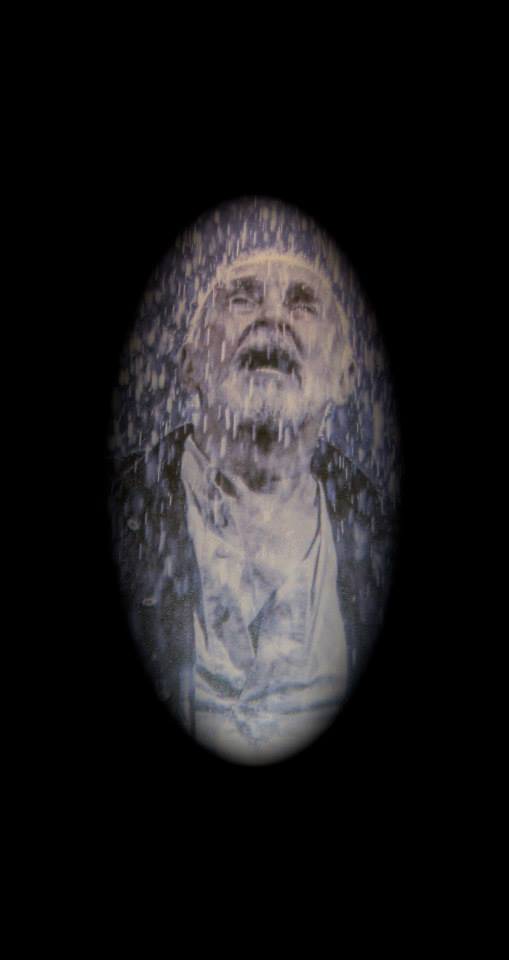The end of the Chichester Festival Theatre’s KING LEAR tore my heart out and cast its remnants on a desolate plain. But I’ll get to that later. Up to then, Angus Jackson’s production, currently on loan to BAM, is refreshingly straightforward but somewhat nondescript; it tells the story, without dragging, but rises only occasionally to an emotional or aesthetic height.
Robert Innes Hopkins’ décor is appealingly basic, a few layered platforms against a backdrop of high, straight pillars, all done in shades of brown with accents of mauve, including a pair of side panels in which the colors bleed into each other, as though in a diptych by Rothko (whose spiritual inclinations would be appropriate to the material). When the actors stand tall and taut in the first scene they are as one, compositionally, with the pylons at the rear. On the other hand, there is something about the space that makes the actors hesitate when exiting the stage – perhaps it is too dark to see. This affects the flow of the drama, but visually, at least, everything is of a piece.
The acting itself is variable, from Frank Langella’s Lear on down. Initially, the lead’s presence, augmented by his fame, and the rumble of his voice, makes the other men on stage sound a little squeaky (the women playing Regan and Goneril hold their own). Fortunately, this effect dissipates; in fact, Langella’s attitude toward the ensemble is, by all appearances, generous and supportive. One wonders, even, if he is holding back, for – now I must say it – his Lear is oddly subdued. He does, to be fair, convey the hypocrisy of one who gives up power but still expects that his every desire be fulfilled, and whose temper flairs when they are not. But what is it, really, that leads this man to banish his most loving daughter and behave so fecklessly with the ungrateful two upon whom he blandishes his kingdom? Is his downfall a moral one, as would seem necessary to give meaning to his redemption, or the result of physical and mental decay, such that his condition, rather than what he does, is what is tragic?
Langella goes more with the latter than the former, playing “old” from the start, adding a wobble to his gait and a catch to his voice. Lots of older actors fall into this trap: Langella is 76 and need not play it. If there are particular infirmities to the character, yes, play those, but not the age itself. Highlighting age as the issue could be the point, of course, that Lear is no more than indifferently flawed, just old, that he is, like Job, a fly to the gods, who dutifully swat him, his moral character of no particular relevance. That theme is, indeed, explicitly stated, and redounds on virtually every figure in the drama, whether they are hanged or blinded or dispossessed, and maybe an overemphasis on this explains why we feel so little for so much of this production: even the gouging out of Gloucester’s eyes, realistic though it is, has little impact, on us or the actor playing him.
And so the story is told, in a reasonably involving and never boring way, but one yearns for the volcano that Langella might have been, and wishes there were more to his tragedy than arbitrary injustice. But then he is thrown upon the heath and things start to change; we get not the eruption of the mountain but the flow of the lava. I need not chart its full course; in the end Langella plays the moral condition of his character rather than oldness, and enacts the slippage of voice and body that accompanies the loss of love and friendship. His huge lumbering frame – his arms dangling like an ape’s, his shoulders bent like a question mark, his voice reduced to a bare outtake of air – crumbles finally to the ground, and squeaks out a last plea to the universe. Maybe a pin dropped somewhere. As someone once said of another actor in a towering role, he may not have played Lear perfectly, but there are very few actors who could have played him at all.
